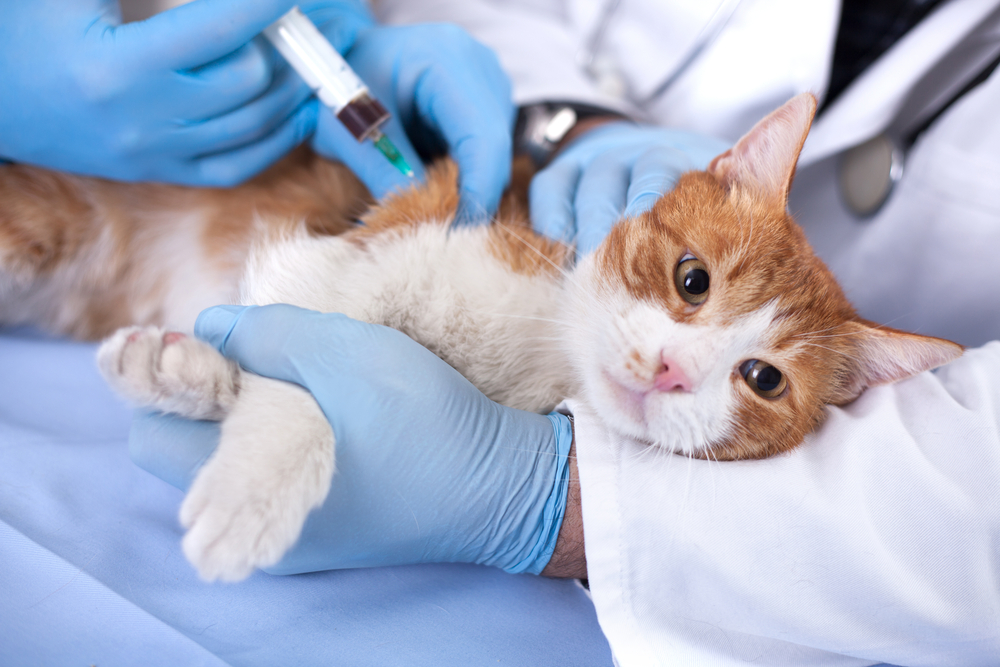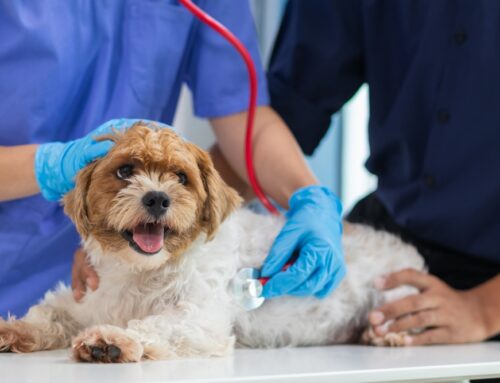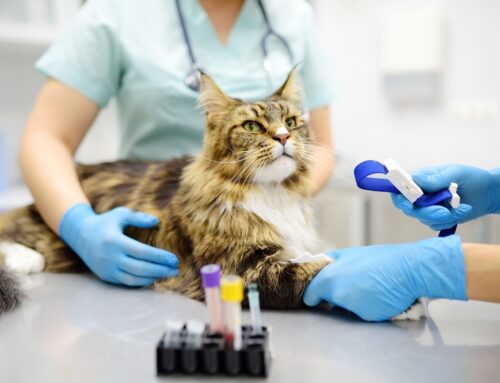Our four-legged companions complete our families and fill our lives with wet noses, furry cuddles, and unconditional love. Caring for and protecting your pet should include regular preventive care visits with your south Austin veterinarian to ensure a healthy, disease-free life. Being prepared for unexpected pet emergencies or illness is equally important, especially since making decisions when your pet is injured or suddenly sick is stressful. Our Oliver Animal Hospital team wants to ensure you can recognize the clinical signs of a veterinary emergency, before your furry friend gets into trouble and needs immediate care. However, remember that you know your pet better than anyone else, and you should always contact us immediately if you are worried about your furry pal, whether or not their symptoms are included below.
Trauma, bleeding, and broken bones in pets
Whether your pet has accidently slipped outside to explore the neighborhood, or jumped off the bed to chase the pesky cat, any trauma is painful, and your pet may vocalize when touched or moved. Additionally, pets who have suffered a trauma, such as being struck by a car or falling from any height, often have multiple injuries, including some that may not be immediately obvious. Call our hospital immediately if your pet exhibits any of these signs:
- Active bleeding that doesn’t stop after five minutes
- Bleeding from the mouth, nose, ears, rectum, or when urinating
- Exposed tissue, bones, or muscles
- Yelping, meowing, or barking when touched or moved
- Puncture wounds from another animal
- Limping, or inability to walk or stand on all four legs
Poison exposure in pets
Our pet’s curious nature can sometimes lead them to eat dangerous or toxic substances. Many common household items and foods are the culprits in veterinary emergencies, including chocolate, raisins, sugar-free treats and toothpaste with xylitol, holiday plants, rodent poison, and human medications. If your pet eats something other than their pet food or treats, call our office, the ASPCA poison control, or the Pet Poison Helpline to determine if the ingested item is dangerous to your furry pal.
Retching, vomiting, and excessive salivation in pets
Pets who are experiencing bloat or gastric dilatation volvulus (GDV) from excess air trapped in their stomach may appear to be vomiting. If your pet has a distended stomach or is retching, they need immediate veterinary care. Nauseated pets may have more subtle signs, such as excessive saliva. Additionally, vomiting, retching or excessive salivation may indicate other medical emergencies, including :
- Gastrointestinal blockage
- Poison or toxin ingestion
- Liver, kidney, or other disease causing sepsis
Straining in pets
Pets who cannot urinate or defecate may be experiencing a urinary blockage or constipation. You may notice your cat making frequent litter box trips without producing feces or urine. Male cats are especially prone to urinary blockages that, without treatment, can cause death. Urinary or fecal blockages are extremely painful for pets, and dogs and cats will posture as if they need to eliminate, but without effect.
Difficulty breathing in pets
Your pet’s breathing pattern changes may indicate they are in respiratory distress. Increased efforts to inhale or exhale with exaggerated abdominal or chest movements may also indicate that your pet is in respiratory distress. Pets experiencing a respiratory emergency may also have grey, white, or bluish gums, because they desperately need oxygen.
Allergic reactions in pets
An anaphylactic or allergic reaction can occur when your pet is hypersensitive to a foreign substance or protein. Common causes of allergic reactions include bee or other insect stings and chemicals. Vaccines can cause reactions in rare cases. Emergency veterinary care is needed if your pet exhibits allergic reaction signs, including:
- Swelling of the face or muzzle
- Hives
- Extreme itching
- Excessive drooling
- Vomiting or diarrhea
- Difficulty breathing
Seizures in pets
If your pet is jerking, shaking, or convulsing, they may be experiencing a seizure and will need immediate veterinary care. Long-lasting or frequent seizures will increase the risk of damage to your pet’s brain. Seizures may be a symptom of infection or illness, such as kidney or liver disease, or can be a stand-alone disease. Immediate treatment to stop the seizures and long-term preventive medication are vital for your pet’s long-term health.
Extreme heat in pets

Although our Austin winters are much cooler, spring and summer will be here before you know it, and with higher temperatures comes a higher risk of heat stroke or heat exhaustion in your pet. Pets have few sweat glands, and therefore must cool themselves by panting. Heat stroke may occur in pets who are left outside for extended periods of time on hot days or days with cooler temperatures but high humidity, or who are left in the car, despite comfortable weather outside. Heat stroke in pets is a veterinary emergency and can be deadly without early recognition of clinical signs, which include:
- Excessive panting or drooling
- Difficulty breathing
- Vomiting or diarrhea
- Weakness
- Loss of coordination
- Seizures
- Sudden collapse or loss of consciousness
Our Oliver Animal Hospital team hopes your pet never experiences a veterinary emergency, but if you notice any unusual clinical signs, or become worried that they may be in trouble, contact our office, or schedule a telemedicine appointment. We are always here to help.







Leave A Comment